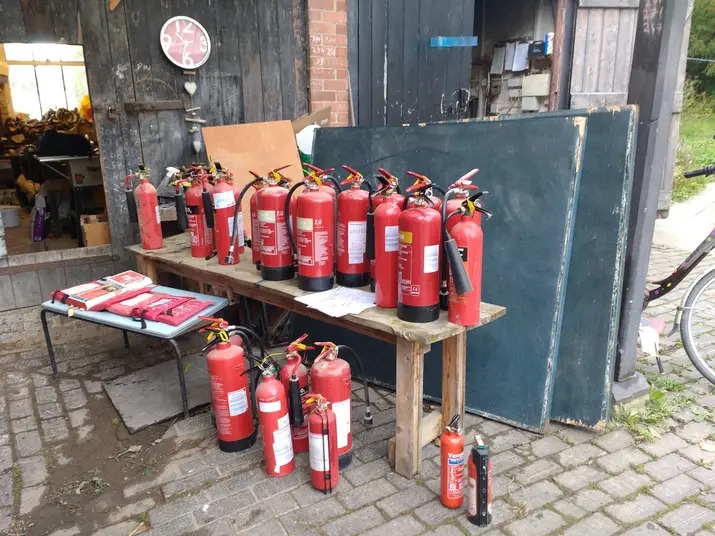
Earthworm Housing Co-operative Ltd was registered in 1989 as a Fully Mutual Housing Co-operative. This is a legal form that means that all members pay rent, and all members share the decisions about how that rent is spent.
The co-op’s business is to manage housing for all its members. Anything else that happens here on top of that, like gardening, housework or any business beyond the provision, maintenance and renovation of housing, is the business of the individuals who live here, not the business of the co-op.
It’s a subtle business living in/being a member of a housing co-op. We are both the tenants and the landlords, thinking and planning with both of those hats on. Members need to be both professional and compassionate with one another, so it’s unlike other house-shares, family homes or blocks of flats where everyone is paying rent to a distant landlord.
Recruitment takes a long time, because once you’re a member you have equal say with all other members. We spend a lot of time talking you through our policies and procedures so you can contribute to and comprehend the co-op’s business well.
We are also signed up to the international “Co-operative Principles”. This section below tries to show how we enact these principles in our co-op.
Co-operative Principles
(as agreed by the International Co-operative Alliance, 1995, Manchester)
Cooperative identity
A co-operative is an autonomous association of persons united voluntarily to meet their common economic, social, and cultural needs and aspirations through a jointly owned and democratically controlled enterprise.
Values
Co-operatives are based on the values of self-help, self-responsibility, democracy, equality, equity and solidarity. In the tradition of their founders, co-operative members believe in the ethical values of honesty, openness, social responsibility and caring for others.
Principles
The co-operative principles are guidelines by which co-operatives put their values into practice.
1. Voluntary and Open Membership
Co-operatives are voluntary organisations, open to all persons able to use their services and willing to accept the responsibilities of membership, without gender, social, racial, political or religious discrimination.
At EWHC, we do this through our membership process, clearly laid out on our website and in our membership policy.
2. Democratic Member Control
Co-operatives are democratic organisations controlled by their members, who actively participate in setting their policies and making decisions. People serving as elected representatives are accountable to the membership. In primary co-operatives members have equal voting rights (one member, one vote) and co-operatives at other levels are also organised in a democratic manner.
At EWHC, we do this through cCo-op management meetings and an email process. We aim to make decisions by consensus and have so far managed every time.
3. Member Economic Participation
Members contribute equitably to, and democratically control, the capital of their co-operative. At least part of that capital is usually the common property of the co-operative. Members usually receive limited compensation, if any, on capital subscribed as a condition of membership. Members allocate surpluses for any or all of the following purposes: developing their co-operative, possibly by setting up reserves, part of which at least would be indivisible; benefiting members in proportion to their transactions with the co-operative; and supporting other activities approved by the membership.
At EWHC, all members pay rent and bills. Accommodation is provided according to the rent level paid by each member. We spend most of our money renovating and maintaining our buildings.
4. Autonomy and Independence
Co-operatives are autonomous, self-help organisations controlled by their members. If they enter into agreements with other organisations, including governments, or raise capital from external sources, they do so on terms that ensure democratic control by their members and maintain their co-operative autonomy.
We do this by thorough financial planning and consciously choosing ethical banks.
5. Education, Training and Information
Co-operatives provide education and training for their members, elected representatives, managers, and employees so they can contribute effectively to the development of their co-operatives. They inform the general public - particularly young people and opinion leaders - about the nature and benefits of co-operation.
We do this by providing co-op-training to all members. We also train ourselves in aspects of co-op management and ecological renovation and do outreach through events at EWHC and participating in events locally and beyond.
6. Co-operation among Co-operatives
Co-operatives serve their members most effectively and strengthen the co-operative movement by working together through local, national, regional and international structures.
Our co-op is a member of Radical Routes and Co-ops UK. We also have good relationships with other local housing co-ops such as Crabapple and Highbury Farm.
7. Concern for Community
Co-operatives work for the sustainable development of their communities through policies approved by their members.
Some of our members are active both in the local community and in the co-operative and social change movements.